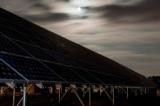|
| State Lines |
Longview, Washington Biomass Power Pollution Permit Appealed
July 5, 2011 No Biomass Burn, World Temperate Rainforest Network, and the Olympic Environmental Council filed a legal appeal against a 54-megawatt biomass power incinerator proposed for the City of Longview by Longview Fibre. The Washington Department of Ecology issued an air permit to Fibre on June 2, 2011.
"Fibre is trying to poison the people of the Longview region and the state for bigger profits," said Duff Badgley, president of No Biomass Burn.
"We
estimate Fibre would generate about $500 million in revenue over 20
years from sale of this electricity," Badgley said. "Fibre's Canadian
owners get the big money. The people of the Longview region and the
state get the big pollution. And this pollution can kill."

Biomass power opposition in Washington State
(Photo: Shawna Whelan) Biomass Opponents in Rothschild, Wisconsin Challenge Developer
June 21, 2011 Save Our Air Resources (SOAR) and Biomass Accountability Project
challenged an announcement by the developer of a proposed 50-megawatt
biomass power incinerator for Rothschild, Wisconsin, who called the
project "green power."
Saying the incinerator will be a "major polluter," and claiming Domtar Corporation misrepresents the project as being environmentally friendly, SOAR and two residents filed a lawsuit challenging the state air pollution permit.
Domtar's
"claim is contradicted by facts in the company's own documents showing
the project will spew out hundreds of tons of toxic air pollutants,
discharge waste to the Wisconsin River, and burn toxic sludge and
trees," said Biomass Accountability Project spokesperson Meg Sheehan.
"Toxic
air pollution from the incinerator will poison the 2,600 children that
live and go to school directly downwind from the biomass plant," said SOAR spokesperson Paul Schwantes. "We are not fooled by claims that this is a 'green' project."
"The
project will emit dioxin, deadly particulates, and other pollution that
contributes to asthma, heart disease and more," according to
pediatrician Dr. William Sammons.
Report Exposes Biomass Power Taxpayer Subsidies
June 28, 2011 A report released by the Massachusetts-based Biomass Accountability Project
details how taxpayers and rate-payers are subsidizing hundreds of
biomass combustion power facilities through programs intended for clean,
renewable energy. The report, "Biomass Electricity: Clean Energy Subsidies for a Dirty Industry," analyzes federal and state subsidies for electricity generated by burning biomass.
The
report explains why funding biomass burning as so-called "renewable
energy" is highly controversial and describes opposition from health,
environmental, and fiscal watchdog groups, and local communities. The
report lists over twenty facilities cancelled in the last eighteen
months due, in part, to public opposition.
|
| Our Health |
American Lung Association "Strongly Opposes" Biomass Energy
Below are excerpts from the American Lung Association's "Public Policy Position on Energy," released on June 11, 2011.
"The
American Lung Association does not support biomass combustion for
electricity production, a category that includes wood, wood products,
agricultural residues or forest wastes, and potentially highly toxic
feedstocks, such as construction and demolition waste. If biomass is
combusted, state-of-the-art pollution controls must be required.
"The
American Lung Association calls for effective enforcement of existing
laws and regulations governing the combustion of wood and other biomass
sources, as well as the expanded regulation of air pollution emissions
from these sources.
"The
American Lung Association strongly opposes the combustion of wood and
other biomass sources at schools and institutions with vulnerable
populations.
"The
American Lung Association recommends continuing research on the health
effects of burning wood and other biomass sources, and the technologies
to reduce the emissions associated with the combustion of these fuels.
"The
combustion of fossil fuels and biomass...generates a significant share
of the nation's air pollution, threatening the health and lives of
millions of people, including those who are most vulnerable to harm. The
American Lung Association strongly supports policies that encourage a
transition from coal, oil, and biomass use...to cleaner alternatives."
|
| Source Watch |
Biomass Industry vs. Biomass Industry in New Hampshire
Employees
from the biomass industry in New Hampshire strongly opposed the
construction of a recently canceled 75-megawatt biomass power proposal
by Laidlaw Berlin BioPower for Berlin, New Hampshire. Below are excerpts from public comments submitted by dozens of biomass workers to the NH Public Utilities Commission.
"I
am currently employed at a small biomass power plant in central NH. The
Power Purchase Agreement...will have a detrimental effect on me, my
coworkers, the local economy, and the local loggers in the community.
"I
see no benefit to a plant this size being built in the state. I fear it
could put me out of work and once unemployed have an increase in my
electric bill that I may or may not be able to pay."
$5 Million of Taxpayer Dollars to Fund Biomass on Public Lands
An
appropriations bill for the Department of the Interior in the U.S.
House of Representatives would divert $5 million of taxpayer dollars to
the U.S. Forest Service to make grants "for the purpose of creating incentives for increased use of biomass from national forest lands."
Western
public forests, including National Forests and Bureau of Land
Management lands, are being increasingly targeted for biomass extraction
under the guise of "fire fuels reduction," contrary to the best
available science.
The Healthy Forest Restoration Act (HFRA), passed by President Bush in 2002, increased logging on public lands in the name of protection from wildfire. HFRA also sought to "authorize grant programs to improve the commercial value of forest biomass."
According to Jack Cohen, research scientist at the Fire Sciences Laboratory in the U.S. Forest Service's Rocky Mountain Research Station:
"Home ignitability, rather than wildland fuels, is the principal cause
of home losses during wildland/urban interface fires. Key items are
flammable roofing materials and the presence of burnable vegetation
immediately adjacent to homes. Intense flame fronts (or crown fires)
will not ignite wooden walls at distances greater than 40 meters or 130
feet."
|
| Letter to the Editor |
THE BIOMASS MONITOR
is looking to open the biomass discussion to our readers. Please send
your 150 word response to any of our articles (longer submissions will
be edited) to thebiomassmonitor [at] gmail.com. One letter will be
published per issue. We look forward to hearing from you!
|
|
| From the Editor |
Rachel Smolker, Managing Editor
The
recent announcement of a Congressional "biomass caucus" reveals just
how out of touch Washington is with the real world. Rep. Peter Welch, of
Vermont, who is chairing the caucus, is no fool, but clearly he has
never looked a real biomass permit application in the face. The
permitting game involves evading public participation, muddling numbers
to avoid thresholds for regulation, and ensuring that subsidies are
forthcoming.
Washington State's Longview facility is a good recent example, as is the Domtar
facility in Wisconsin. Aging pulp mills seeking a new lease on
life--these polluters need to be held accountable, not granted subsidy
handouts for spewing toxins into the air!
|
 |
|
|
| Biomass Buster of the Month |
Denny Haldeman - Tennessee
Living
in the mixed mesophytic forest north of Chattanooga, Denny Haldeman has
been "warning about the impending rush to burn forests" since the
1980's. As co-founder of Dogwood Alliance and TAGER,
Denny helped fight off 27 biomass chipping facilities in the Tennessee
Valley throughout the 90's. Denny is currently active on the national
steering committee for Energy Justice Network's anti-biomass campaign.
"We
had the most amazing and diverse coalition for forest protection ever
seen in the US when we fought off the last round of chippers," says
Denny. "I see our movement as quite capable of replicating that effort
now."
|
 |
|
|
| D.C. Watch |
Congress Cuts Ethanol Subsidies
Spending
cuts are all the rage in Congress. Wasteful subsidies going to biofuels
were targeted in July by an amendment to legislation in the Senate that
would repeal the 45 cent per gallon ethanol tax credit and eliminate
the tariff on imported ethanol.
The bill was hailed by many
feeling the pinch from tightening corn supplies, including groups
fighting hunger, grocers, and meat producers. But it also raised
concerns about opening the floodgates to imports, with all the harms
from deforestation to violent land grabs associated with ethanol
production in Brazil and elsewhere.
The amendment is not likely
to pass into law right off, but won overwhelming bipartisan support and
sent a strong signal to the ethanol industry of what's to come. While
we're at it, why not cut wasteful subsidies for biomass burning as well?
|
 |
|
|
| Take Action! |
Help distribute THE BIOMASS MONITOR
by going to the bottom of this e-newsletter and clicking "Click to
invite a friend to receive our eNewsletter." Send to your friends,
family, co-workers, elected officials, media contacts, and local and
national environmental groups.
Help spread the word about the
threats to public health, climate, and forests from biomass power and
the communities banding together to keep biomass incinerators out of
their towns!
No other newsletter covers the growing opposition to biomass power incineration like THE BIOMASS MONITOR! Help us expand our reach! |
 |
|
|
| Alternatives |
Solar Power at Night?
www.setyoufreenews.com
Solar powered utilities normally have a great drawback at night: they cannot generate power. But Gemasolar can
continue running the turbines and generating electricity for up to 15
hours of darkness by drawing off the stored heat and steam generated
within the salt tanks.
Using a gigantic array of solar mirrors, the Gemasolar Power Plant located near Seville, Spain reflects sunlight off its 2,650 panels onto a huge receiver located at the epicenter of the plant.
The
highly polished mirrors reflect as much as 95 percent of the solar
radiation directed towards tanks containing molten salt. As the salt
heats, pressurized steam is created [which] drives the power station's
turbines.
|
 |
|
|
|



